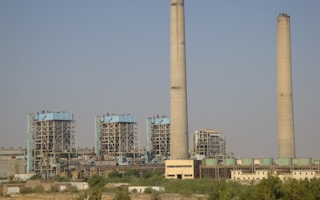As the latest round of climate negotiations opened in Dubai in early December, the President of COP28 called on the Multilateral Development Banks (MDBs) to raise their ambition on climate change and to lay the foundations for a new framework on climate finance.
The urgent need to tackle the climate crisis and limit temperatures from rising beyond 1.5 degrees has brought MDBs operations under intense scrutiny. MDBs face the formidable challenge of transforming their operations and strategies to align with the Paris Agreement.
The World Bank Group (WBG) and Asian Development Bank (ADB) still provide notable funding for gas. Between 2016 and 2021, the WBG approved approximately US$11 billion and the ADB around US$5 billion for gas projects.
The WBG and the ADB have both introduced restrictions on investments in gas, including ceasing upstream support for the gas industry, at least in their direct finance. Paradoxically, the WBG and the ADB’s continued technical assistance for gas-related projects creates a significant loophole that supports further expansion of gas projects.
Beyond their traditional role as “finance banks”, the MDBs, notably the WBG, consider their advisory function to be critical and for the WBG, this includes a very definite focus on building its role as a “knowledge bank”. But this advisory function can have disproportionate impact on a country’s energy system, and is an enabler for gas expansion in a significant number of cases.
As an example, the WBG allocated almost US$200 million in “technical assistance” for the gas-related sector since the Paris Agreement came into effect in 2016 to mid-2023. Across 14 countries, the financing predominantly focuses on extraction, supply, decision-making, and governance. The ADB committed nearly US$11 million in technical assistance for gas-related projects from 2016 to 2021. The ADB’s technical assistance for gas has more than doubled compared to the period preceding the Paris Agreement (2010–2015), during which investments amounted to US$4.5 million.
The significance of technical assistance
Technical assistance is the MDBs mechanism to provide assistance and guidance to member countries in the preparation and implementation of projects aimed at achieving their development goals.
Despite its significantly smaller financial scale than other loans and grants, technical assistance requires attention, especially because it is likely to become a more central tool in the MDBs portfolio of support to countries, as the MDBs seek to maximise their support to countries in a cost-effective way.
Technical assistance has a significant influence on development trajectories by providing expertise, support, and guidance that influence countries’ energy strategies. It also opens up the pathway for future lending and investments.
Technical assistance by the World Bank and ADB are often relatively small projects, and could thus face less scrutiny from the lenders’ senior leadership, despite such projects’ foundational role for future financing and massively disproportionate influence in the energy sector.
The hidden costs of technical assistance
MDBs have yet to make dedicated efforts to halt technical assistance for gas-related projects. Instead, they have taken advantage of loopholes to support fossil fuels through technical assistance. This includes claims of emissions reductions from existing gas infrastructure and touting “efficiency” while, on the other side, actively backing gas projects at the downstream level.
Both the WBG and the ADB maintain that gas remains an indispensable ‘transition’ fuel for ensuring energy access and reliability. This is despite the risks of gas price volatility and hindering the renewable energy transition, along with its environmental risk from significant leakage of methane, which has a much higher heat-trapping capacity than CO2. Thus, technical assistance unfairly shapes and influences client countries’ energy policies and strategies. Technical assistance is not free help with no strings attached but carries a strong subjective will of the donor institution.
Promoting gas through technical assistance exacerbates environmental and climate impacts, leading to potential long-term carbon-intensive energy lock-in challenges.
In the context of the energy transition, for example, the WBG’s Climate Change Action Plan 2021-2025 and the ADB’s 2021 Energy Policy promote gas as a cleaner alternative to coal. But this is misleading as gas is a fossil fuel with a significantly underestimated climate impact. It is the most rapidly expanding contributor to CO₂ emissions among fossil fuels, responsible for over 50 per cent of the increase in the past five years.
In project documentation, the ADB justifies support for technical assistance for gas based on its potential to address climate change, even though it is harmful to the climate. In Pakistan, for example, according to the ADB’s project documentation for the Gas Storage Development Systems technical assistance, approved in 2021, part of the objectives are to tackle climate change and build climate and disaster resilience, and yet it overtly supports gas infrastructure that will lead to fossil fuel lock-in.
Reorienting MDBs’ technical assistance to support climate goals
MDBs like the WBG and the ADB must stop directly or indirectly incentivising gas projects through technical assistance. Rapidly reducing carbon emissions is vital to prevent catastrophic climate change. Technical assistance in the energy sector should be ring-fenced to support a sustainable, renewable energy transition, which is particularly crucial for developing countries facing rising energy demands.
Support for the expansion of gas through technical assistance stimulates additional long-term demand for gas and creates dependency on gas, a carbon-intensive energy source that is fueling the climate crisis. This undermines international and country-level climate targets and disproportionately affects developing countries, intensifying their vulnerability to climate-related disasters.
By issuing technical assistance for gas, MDBs also hinder the deployment of clean and renewable energy solutions for developing countries that should be prioritised.
Technical assistance should be directed toward supporting client countries to enhance a fossil fuel phase-out in line with their NDCs, which are consistent with global climate targets.
By aligning MDBs’ technical assistance with the Paris Agreement’s goals and avoiding support for gas projects, MDBs can play a role in supporting governments to deliver the global transition to a low-carbon and resilient future.
Andri Prasetiyo is a senior researcher on climate policy and finance at Senik Centre Asia, a research-driven organisation working on clean and equitable energy transition.
Fran Witt is the gas campaign manager with nonprofit Recourse, and has more than 30 years international development experience, with an emphasis on climate justice, economic justice, development finance and international human rights.










